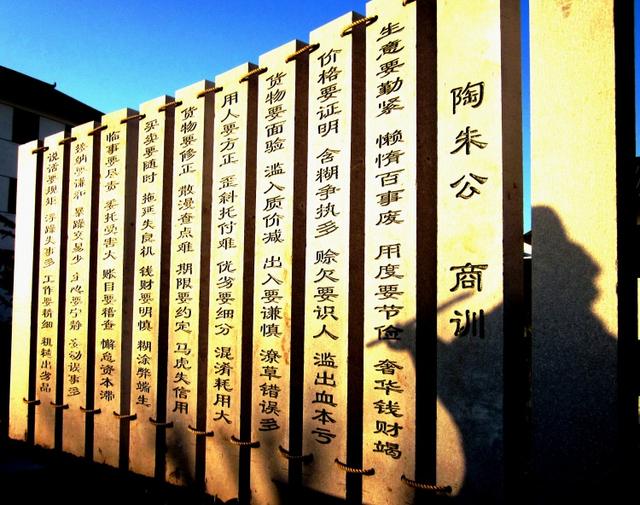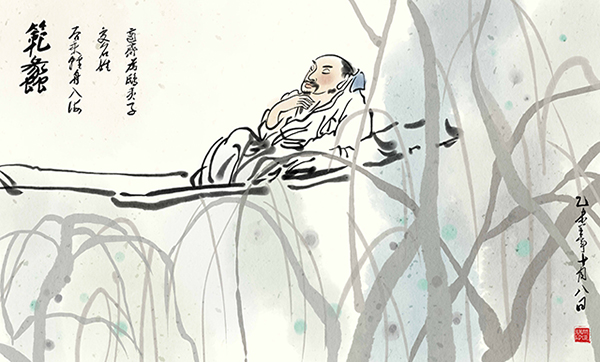Feng Li, known as “Shang Sheng (the saint in business)” by later generations, was from the state of Chu in the spring and autumn period. He went to the state of Yue to assist Goujian, the king of Yue, in planning the destruction of Wu by sleeping on brushwood and tasting bile to remind himself why he needed to reclaim his defeated county. After more than 20 years, he turned defeat into victory and beat the state of Wu, thus achieving the grand plan of King Goujian. Feng Li was awarded the official position of the general.
Feng Li thought that “Under a great name, it is difficult to live for a long time.” It is consistent with Lao Tzu’s idea of “achieving great success but taking no credit.” He resigned not long after his success and left the state of Yue. He came to the state of Qi and became a coast guard instead. This was Feng Li’s first retreat after gaining great success.
Feng Li managed the industry by the sea and soon accumulated hundreds of thousands of assets. Because of his financial ability, he was honored as a minister by the state of Qi. Three years later, Feng Li resigned from the position of minister, “achieving great success but taking no credit” again, and he scattered all his wealth and moved to another country.
Feng Li moved to Tao Di for his third time retreating. Within a few years, Feng Li became a wealthy man again in business. He called himself “Tao Zhu Gong” and was called “God of Wealth” by the local people. A renowned historian, Sima Qian, praised Feng Li in his book Shi Ji (Historical Records) and said, “Feng Li is famous for his three retreats.”
Tao zhu gong resided in Tao for 19 years, he had accumulated enormous wealth and scattered it three times. The later generation collected his thought and ideas as a model for business and recorded in the book “Sixteen Principles of Tao zhu gong’s financial management.”
Feng Li finally left the Tao land and did not engage in any more business. He took Lady Xi Shi with him and wandered around Taihu Lake, living a free and unfettered life.

范蠡的身退功成之道(功遂身退)
被后人尊称“商圣”的范蠡,是春秋时期楚国人。他博学多才,从楚国来到越国,辅助越王勾践,卧薪尝胆,制定灭吴计划。用了前后二十余年的时间,终于反败为胜,打败吴国,成就了越王勾践的宏图霸业。范蠡被授予上将军的官职。
范蠡认为“大名之下,难以久居”,即是吻合老子“功成而弗居”的思想。他功成名就之后,及时辞去官职。并离开越国,来到齐国,在海边治理产业。这是范蠡第一次身退功成。
范蠡在海边治理产业,很快就积累了几十万的资产。因为他的商业才能,又被齐国拜为卿相。三年之后,范蠡再次辞去卿相官职,再次“功成而弗居”,并散尽家财,再次迁徙他乡。
范蠡第三次迁徙到了陶地。未经数年,范蠡经商再次成为巨富,自称陶朱公,被当地人称为财神,被后人称为中国儒商的鼻祖。司马迁在《史记》中称赞范蠡说,“范蠡三迁皆有荣名。”
http://blog.sina.com.cn/s/blog_6a80502b0100pbm2.html
陶朱公在陶十九年,曾经“三致千金”,就是散了又挣、挣了又散三次,成为天下首富。至今传有《陶朱公理财十六则》一书。
范蠡最后又离开了陶地,什么都不经营了,只带着西施,浪迹太湖,过着无拘无束的生活。




